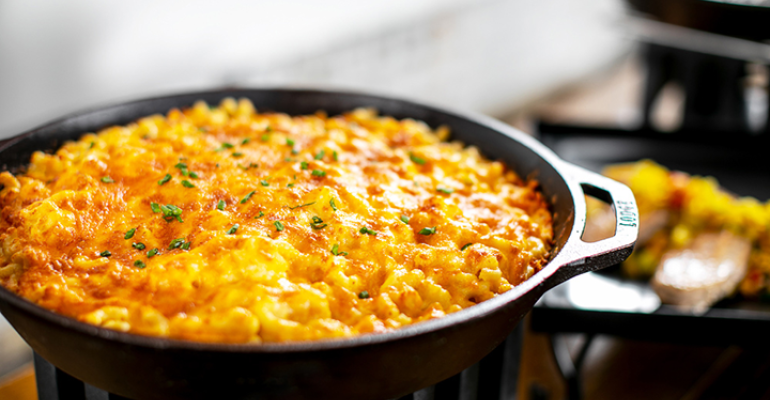Sometimes, fine dining puts the finishing touch on an event. Other times, serving good-old-fashioned comfort food is the key to leaving your attendees with warm memories.
In an article for Catersource, Kat Gordon with Muddy’s Bake Shop (Memphis) says that while there's a lot of diversity among southern food, there is one throughline: "'Down South' cuisine, to me, is all about generosity and hospitality."
Southern styles
Traditionally, southern cuisine can be broken down into six styles:
- Soul Food: This style of cooking was first developed in the deep south in slave quarters of Southern plantations where families used simple ingredients and simple cooking techniques which produced complex flavors.
- Cajun: Cajun cuisine came from the descendants of French Canadians (aka Arcadians), who migrated to Southern Louisiana in the mid-1700s.
- Creole: Creole is somewhat like Cajun in that it is associated with cooking techniques from France. The primary difference between the two is that Creole uses tomatoes and tomato-based sauces, while Cajun food usually doesn't.
- Gullah: Gullah cuisine was created by former slaves who migrated to the coastal districts of South Carolina, Georgia, and Northeast Florida after the Civil War, and is very influenced by West African cuisine.
- Low Country: Low Country cuisine is traditionally associated with Georgia and South Carolina. This cuisine uses a lot of seafood and strongly resembles Creole and Cajun cuisine.
- Floribbean: “Floribbean” cuisine marries Asian and Caribbean (Cuban and Haitian) cooking methods with an emphasis on extremely fresh ingredients, spices, seafood and poultry, and the use of fresh fruits and juices.
To learn more about southern cuisine and each of these food styles (and to get some great recipes), read the full article from Catersource.
0 comments
Hide comments





